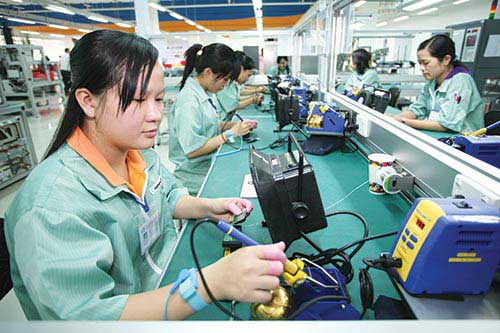
 |
|
A joint FIA-UNIDO report has concluded that incentives aren’t a clincher for investment. |
However, a report released last week from the Ministry of Planning and Investment’s Foreign Investment Agency (FIA) and the United Nations Industrial Development Organisation (UNIDO) in Vietnam revealed that investment incentives played only a limited role in determining the international pattern of foreign direct investment (FDI) in the country.
In order to attract FDI, incentives have been designed and applied in Vietnam since the first Law on Foreign Direct Investment was enacted in 1987. Investment incentives apply to tax, land, credit and other forms of local financial support.
The report was based on a survey conducted with the participation of 1,426 companies in Vietnam, more than half of them are foreign.
The report revealed that other factors such as ease of import and export procedures, availability of local suppliers, the regulatory framework, production costs, adequate infrastructure and the country’s geographical location were the main deciding factors in cross-country variations in FDI inflows.
“The effectiveness of investment incentives is therefore linked to the political, economic and social environment from where these are offered, and therefore incentives can never fully compensate and offset the challenges posed by an otherwise weak or unfavourable investment climate,” FIA and UNIDO noted in the report.
The survey revealed that incentives only ranked 17th in importance among the 21 factors considered by a foreign company when investing in Vietnam. Top priorities were economic and political stability, tax, labour costs, the country’s legal framework and the quality of infrastructure. The report implied that Vietnam would be better off focusing on maintaining stability and improving the quality of its legal framework and infrastructure rather than becoming too bogged-down in discussions about incentives.
“Incentives may still play an important role in the attraction of FDI in the economy. However, it is acknowledged that fiscal incentives tend to act more as an additional rather than as the necessary factor in the investment attraction process,” said Brian Portelli, technical advisor at UNIDO.
“If shortcomings in the enabling environment can’t be addressed in the immediate future, then incentives act as a compensatory factor. However, if incentives don’t correct concrete shortcomings, their impact on investors is at best uncertain, at worst misunderstood,” he continued.
In addition to the limited role of incentives in investment decision, the report also points out that there does not seem to be much difference in the performance of foreign firms that benefited from incentives compared to those that didn’t.
Portelli said that the survey found only weak evidence that foreign companies receiving incentives employed more people, were more productive and capital intensive than foreign companies that had not received any incentives.
Dang Xuan Quang, FIA’s deputy director, admitted that incentives could enhance a country’s competitiveness in the eyes of foreign investors, but their impacts on the economy remained limited.
“The evidence is that although we offer the highest incentives to foreign investors investing in the poorest areas or in terms of hi-tech industries, the results so far have been modest,” said Quang.






- Intel boosts Vietnam’s semiconductor workforce for ambitious goals
- Vietnam among top investment destinations for SEA investors
- Vietnam looks to support FDI firms as global minimum tax looms
- Factors unlocking Vietnam’s potential in FDI attraction: HSBC
- Opportunity at hand: Leveraging global minimum tax for FDI attraction
- Vietnam: Leading destination for sustainable investment
